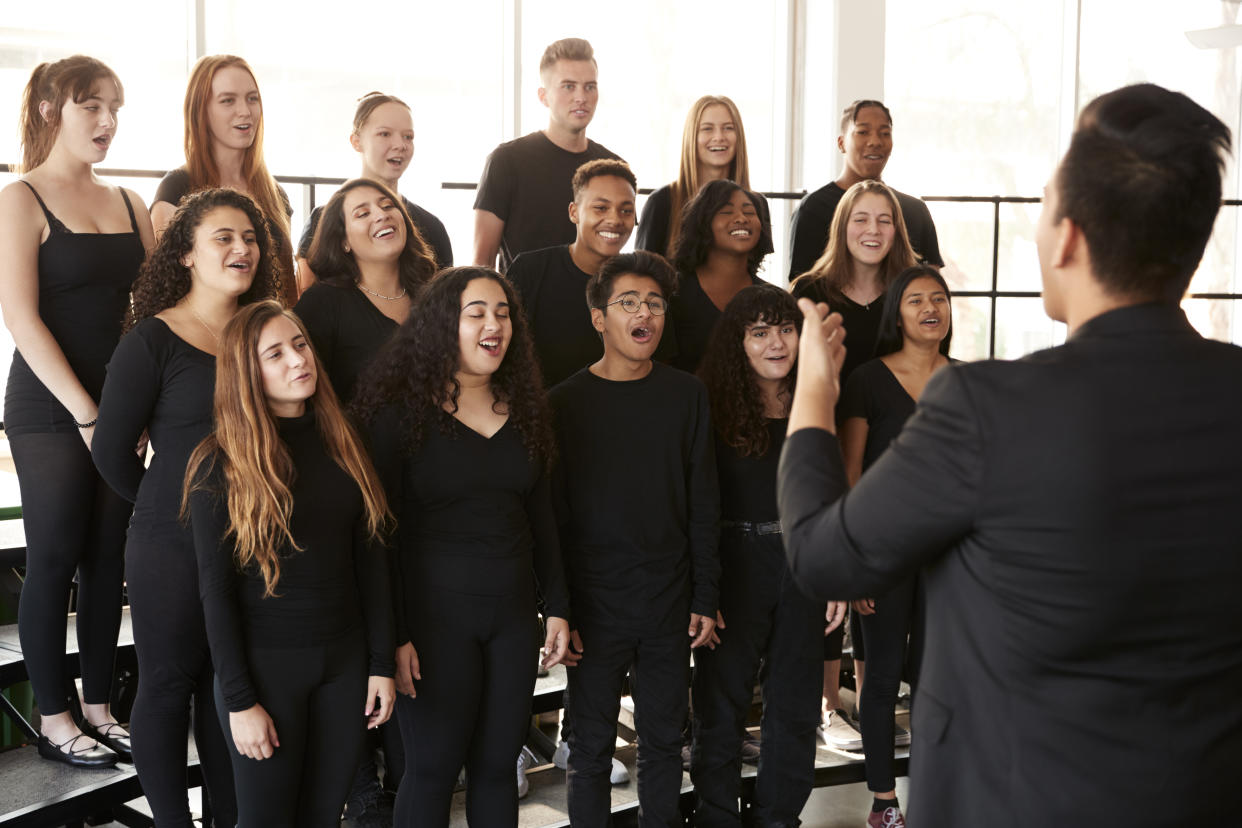Soft singing 'no riskier than talking', coronavirus study finds

The performing arts have been badly hit by the coronavirus outbreak.
Phantom of the Opera, London’s second longest-running musical, was forced to exit stage left after its producer Cameron Mackintosh revealed the financial impact lockdown had on the much-loved show.
The closing of theatres and other performing arts venues is said to have cost the UK economy hundreds of millions in lost tax revenue.
As well as the confined layout of theatres, singing was flagged as a potential risk early in the outbreak after clusters of cases were linked to amateur choirs.
Scientists from the University of Bristol have found, however, singing is no riskier than talking providing it is done softly in a well-ventilated space.
Read more: Antibodies do protect against second coronavirus infection, study suggests
This coincides with the updated government guidance that states “both professionals and non-professionals” can “engage in singing”, providing they meet in a “group of no more than two households (indoors and out) or up to six people from different households (if outdoors)”.

“The study has shown the transmission of viruses in small aerosol particles generated when someone sings or speaks are equally possible with both activities generating similar numbers of particles,” said study author Professor Jonathan Reid.
“Our research has provided a rigorous scientific basis for COVID-19 [the disease caused by the coronavirus] recommendations for arts venues to operate safely for both the performers and audience by ensuring spaces are appropriately ventilated to reduce the risk of airborne transmission.”
Culture secretary Oliver Dowden added: “I know singing is an important passion and pastime for many people who I’m sure will join me in welcoming the findings of this important study.
“We have worked closely with medical experts throughout this crisis to develop our understanding of COVID-19 and we have now updated our guidance in light of these findings so people can get back to performing together safely.”
Read more: Coronavirus linked to onset of type 1 diabetes in children
The Department for Digital, Culture, Media and Sport (DCMS) – which saw the results in advance – updated its guidance on 15 August to allow socially-distanced performances and rehearsals.
“Both professionals and non-professionals can now engage in singing, wind and brass in line with this guidance,” it states.
“People should continue to socially distance from those they do not live with wherever possible. Venues, performers and audiences should ensure 2m (6.5ft) distancing applies wherever possible.
“Social interactions should be limited to a group of no more than two households (indoors and out) or up to six people from different households (if outdoors).”

The study – supported by Public Health England and the DCMS – measured the aerosols and droplets expelled by 25 professional performers while they breathed, spoke, coughed and sang.
Aerosols are generally defined as being 0.005mm smaller than droplets. They therefore linger in the air, while droplets are subject to gravity. Both are expelled as “respiratory particulate matter” when a person breathes, speaks, coughs or sneezes.
The performers, none of whom had the coronavirus, were asked to sing and speak Happy Birthday at different volumes – 50–60 decibels (dB), 70-80dB and 90-100 dB.
For context, a bird call is around 44dB, a vacuum cleaner 70dB and a motorcycle 7.6m (25ft) away would be in the region of 90dB.
Read more: Russia's coronavirus vaccine has 'rather little detail'
Past similar studies failed to accurately measure aerosol and droplet production due to the “large number of ambient particles in the environment”, according to the Bristol scientists.
They therefore carried out the experiments in an orthopaedic operating theatre with “zero aerosol background”.
Results, published preliminarily on the website ChemRxiv, revealed aerosol production increased modestly by 1.5 to 3.4 times when singing rather than speaking at the loudest volume.
Aerosol release rose by between 20 and 30 times, however, when the performers spoke or sang at their loudest over their softest volume.
At 50-60dB, neither singing nor speaking were significantly different to breathing.
There was also no significant difference in aerosol production between genders or singing genres, like choral, musical theatre or opera.
‘Singers sing to be heard and this is the main risk’
Musical organisations should therefore consider treating speaking and singing as equally risky, according to the scientists.
Attention should instead be paid to volume, as well as the number of people, ventilation of the room and duration of rehearsal, they added.
The team stressed, however, the results are yet to be published in a peer-reviewed journal.
Dr Julian Tang from the University of Leicester pointed out the scientists only looked at one singer at a time.
“The risk is amplified when a group of singers are singing together,” he said.
Dr Tang also questioned how realistic soft singing is.
“Singers sing to be heard by an audience and this is the main risk,” he said.
“We don't want choir members getting infected and potentially dying from COVID-19 whilst doing what they love.”
When asked about the safety of singing versus talking in enclosed spaces, study author Dr Declan Costello – an ear, nose and throat surgeon who specialises in voice disorders at Wexham Park Hospital, Buckinghamshire – said: “Intuitively cathedrals would be safer than bars.
“Pubs tend to not be well ventilated.”
He added, however, it depends on the specific space and the people in it.
“The demographic is extremely important,” said Dr Costello. “A lot of amateur choirs would have a much older demographic.
“Individuals need to make their own assessments.”
Outdoor venues are the “best” place to sing if possible, added Professor Reid.
The Independent Scientific Advisory Group for Emergencies (Sage) has long called for outdoor spaces to replace classrooms in order to get children back to school safely, even suggesting vacant wedding venues be taken advantage of.



